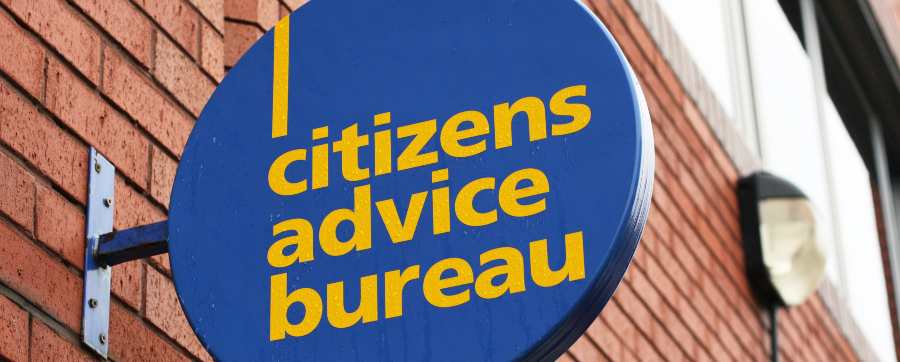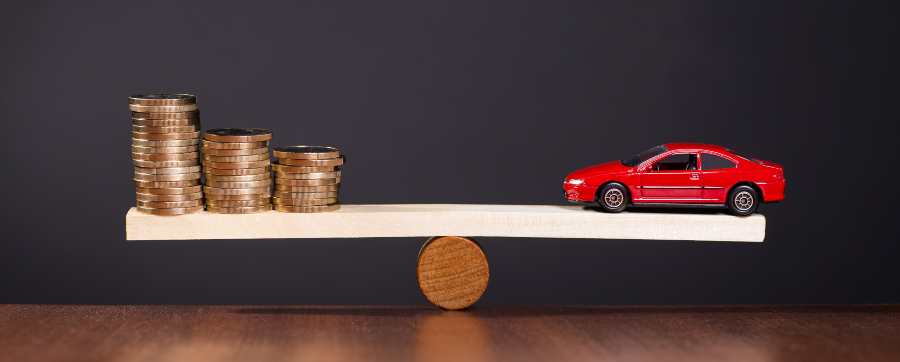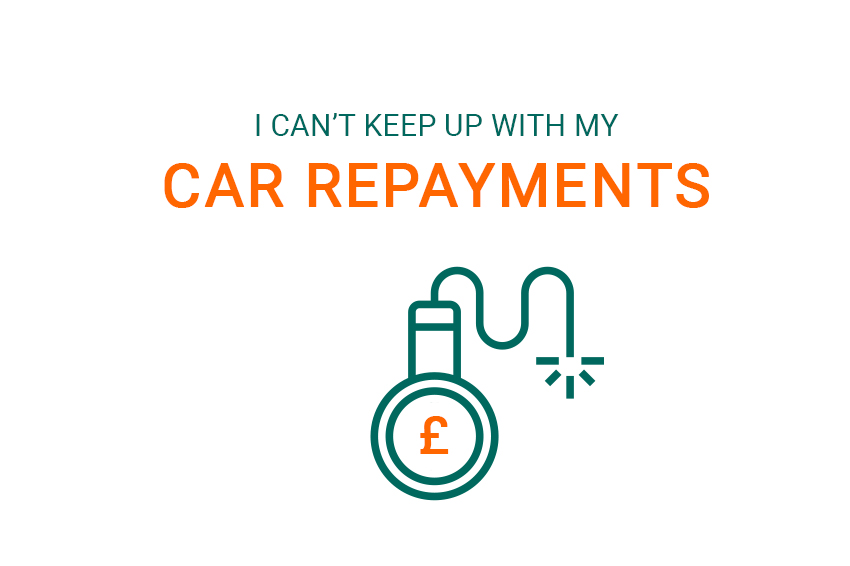It’s not something anyone anticipates will happen to them when they sign a financial agreement for their new vehicle, however, if the worst does happen then there is support available to help you with the next steps.
I’ve lost my job and can’t keep up my repayments
If you find yourself in the unenviable position of losing your job, then it’s possible you won’t be able to keep up the repayments on your lease vehicle. It can be incredibly daunting to find yourself in this position and it’s very easy to be overwhelmed, which in turn can cause panic and stress.
If you find that you are unable to keep up the repayments on your vehicle then there are a few options open to you. In this article, we aim to talk you through the steps you can take as well as any worst-case scenarios.

There are also advisory services you can use if you are need of help, such as the Citizen’s Advice Bureau.
Looking to find out what is available in your budget? Sign up for our weekly newsletters and get all the vehicle special offers right to your inbox.
Why do I need to contact the Finance House when I can’t keep up repayments?
If you’re experiencing financial troubles then the Finance House is there to help you get through them. When you contact them you need to explain your current circumstances they will be able to offer you some suggestions that may help. Some will reduce your payments for a period of time in order to give you a chance to get back on your feet.
If I can’t keep up repayments will my car be repossessed?
If you can’t keep up repayments on your lease then there is a chance that your car will be repossessed.
However, this is the worst-case scenario and always the last resort. As long as you follow the advice in this article you can avoid repossession of your car.

If your finance account already shows missed payments and you can’t keep up repayments, then the process of repossession would likely commence. As I mentioned before, this is the worst-case scenario so don’t panic just yet. Most people assume that they don’t have anything else to pay after the car has been taken away. This isn’t true I’m afraid, and the story doesn’t end when your car is removed either. In fact, you’ll be liable for paying:
- The remaining lease balance
- Any past-due payments
- Amounts for excess wear-and-tear and mileage (if applicable)
- The costs of the repossession
- The costs of resale (such as cleaning), if the lessor decides to sell it after the repossession
- Once the lessor repossesses the car, it will usually sell it through a private sale or public auction
- The deficiency of the car on resale. This is when the finance company sells the vehicle but the sale price does not meet the amount needed to satisfy your lease.
In most cases, the finance company will send an invoice highlighting the amount to pay. If you’re unable to pay in one go, or even by instalments and they remain unpaid then the finance company can direct the case to a third-party collection agency. If your finance company employ a collection agency to recover the debt then the fees can soon mount up and become astronomical.
How can I prevent my vehicle from being repossessed?
If you manage to keep up your current payments you will have no problems. If you have been put in a payment plan by your Finance House, this can also prevent repossession of your vehicle if you experiencing financial difficulties.
As soon as you start to experience problems you should immediately contact your Finance House to alert them to your circumstances. They will be able to advise you of your options. They may be able to offer you a solution which can help you in your current situation. Keep making your payments for as long as you can.
If you miss payments you may discover that your credit score has lowered. If your credit score does drop then you’ll find it even harder to get yourself out of the situation you’re in with your finances. Not only that, but you’ll also incur late payment charges which could just make your situation worse.
Option One – Get your figures
Contact the Finance House and ask them for a settlement figure for your agreement. Once you know where the land lies regarding the settlement, you can start to look at your options.
Calculate what you can afford to pay per month. If you can obtain a personal loan with monthly payments you can afford that will cover the settlement fee, then this could be an option to avoid repossession and additional fees.
Option Two – Speak to your broker or dealer about ‘trading down’
Trading down is a term used for trading your car in for a cheaper model. Your lease provider will calculate a new loan that covers the full amount owed on your previous lease, plus the new cheaper vehicle. By doing this you can bring your payments down, spreading them out over a longer period of time. While this will help with your short term finances you will ultimately be paying a higher fee for a car that is worth considerably less.

Option Three -Investigate selling up
If you’re on a Personal Contract Purchase (PCP), Personal Contract Hire (PCH) or Hire Purchase (HP) agreement then you could investigate selling the vehicle to raise the funds to pay off the loan. If you’re a little short, then you could take out a personal loan for the remaining amount. Make sure that you inform the Finance House before you make any moves to sell the car as it is legally their property.
You can investigate the average prices for your car on the market using the Parkers Guide.
Option Four – Voluntary Termination
If you have satisfied 50% of the loan including interest then you may be able to hand the car back early without paying additional fees, this arrangement is also known as Voluntary Termination. This is only possible if the agreement is regulated.
Since 6th April 2008, most consumer lending is regulated by the FCA, however, some lease car lending remains unregulated. Check with your lease provider or consult your paperwork to check if your agreement is regulated. The lender will conduct checks on the car, arrange the admin, and then take the car and resell it. This will leave you ‘arrangement free’ with no further commitment.
If for any reason your car isn’t worth as much as the remaining loan amount then the lender may take the car back and leave you with a small balance to pay.
Option Five – Find someone else to take over the lease (Lease Trading)
You may be able to find someone willing to take over the remainder of your lease. This is more commonly known as Lease Trading.
Companies like Take My Lease and Swap-a-Lease can help you advertise your lease vehicle and find you a buyer. This isn’t a free option as they are chargeable services and your Finance House will also charge you an admin fee for porting the lease to someone new.

Officially, the person taking over lease should pay the admin fee from the lender, but often this is used in negotiations. You should be prepared to at least contribute towards this fee in order to encourage a sale.
We hope that this article has helped you to understand the choices that you could consider if you are in a situation where you are struggling to make your monthly vehicle payments. These options should help you to avoid having your car repossessed. Remember, repossession is the last resort and that there are other options available to you that won’t cost you as much money as repossession.
If you do find yourself in a difficult financial situation, hopefully, we have given you some options to think about.

How do I cancel the finance and own nothing as the van has broken after owning for 5 moths and 1 week and the garage purchased from can’t provide me with the full service history they told me it had when I purchased the van
Hi Darell,
Thank you for your comment. In the first instance we would recommend you contact your Finance House to explain the situation you are in. We hope that you find a resolution. And if you are looking for a new vehicle after you have resolved this, please get in touch with Amanda on 01903 223391 and she will be happy to help you.
Hi I recently lost my job over the virus I have no money how can I just give my car back without any fees or backlash to stop me getting stressed out please help
Hi Tyler,
We acknowledge that this current situation is difficult for everyone. We would recommend that you contact your Finance House in the first instance. They will be able to offer you advice based on your personal circumstances.
What is “Finance House”? If I google it I just get a bank in the UAE.
Hi Joe,
The definition of a Finance House as pertains to vehicle finance is: a financial institution that lends to people or businesses, so that they can buy things such as cars or machinery.
I had a stroke so I lost my job was a driver because I couldnt moove my hand and leg I will need a lot of time to get well so I left behind some dosage and struggle to pay as I still take only statutory pay and I am in the hospital… I called the company that gave me the car with leasing but they said noting can be done what can I do to save my car for which they charge me double his price but I want to keep it Is there anything I can do???
Hi Chrysoula,
We are sorry to hear of your situation. Unfortunately, the only recommendation we can make is that you contact your Finance House or the dealership where you signed the agreement. Decisions made are at their discretion.